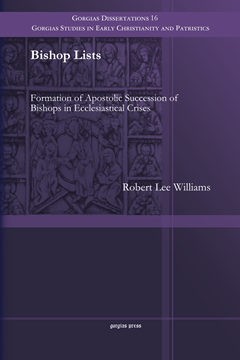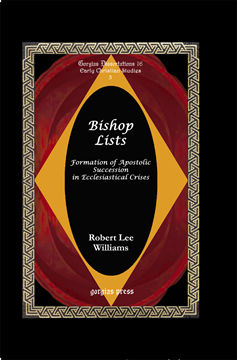Robert Lee Williams
Bishop Lists
Formation of Apostolic Succession of Bishops in Ecclesiastical Crises
ISBN: 978-1-4632-0266-8
Early lists of bishops, identified by Walter Bauer as "literary propaganda," mark critical points in the development of the doctrine of the apostolic succession of bishops. This study delves into the political struggles surrounding the lists and the doctrine they served to define. Ecclesiastical politics in each case reflects the threat to the bishop's authority and clarifies the meaning of apostolic succession in the Church's development. This social history approach, examining the function of the literature within its historical circumstances, reveals how theology developed from politics. The development is as gripping politically as it is illuminating theologically.
$98.00 (USD) $58.80 (USD)
Formation of Apostolic Succession of Bishops in Ecclesiastical Crises
ISBN: 1-59333-194-0
Early lists of bishops, identified by Walter Bauer as "literary propaganda," mark critical points in the development of the doctrine of the apostolic succession of bishops. This study delves into the political struggles surrounding the lists and the doctrine they served to define. Ecclesiastical politics in each case reflects the threat to the bishop's authority and clarifies the meaning of apostolic succession in the Church's development. This social history approach, examining the function of the literature within its historical circumstances, reveals how theology developed from politics. The development is as gripping politically as it is illuminating theologically.
$154.00 (USD) $92.40 (USD)


